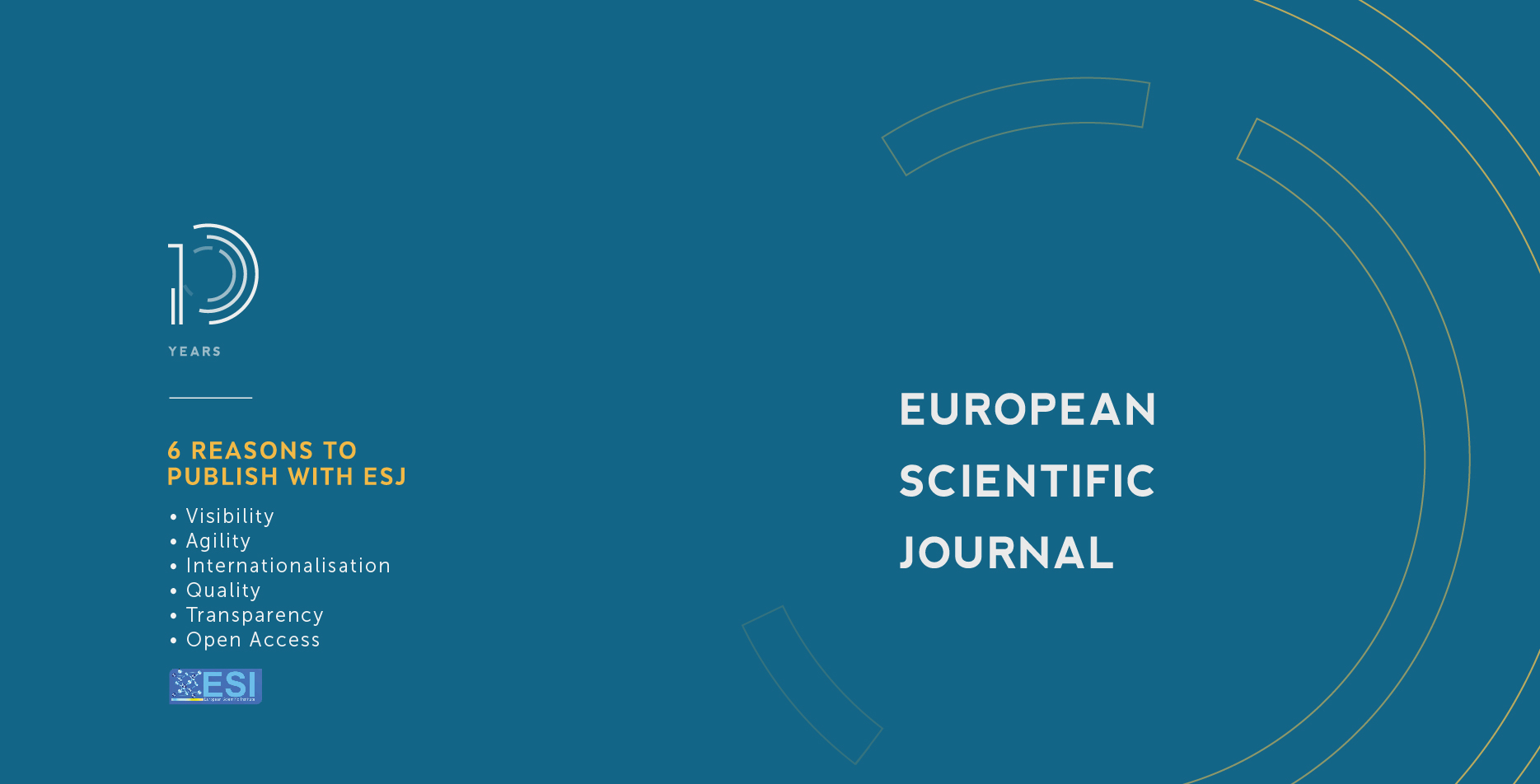Financial Mechanisms in International Production Cooperation
Abstract
The analysis of modern foreign experience shows that the leading global manufacturers of high-tech goods do not seek to produce final products only on their own, but prefer production cooperation - placing production orders on the side, investing in logistics, creating global cooperation chains, etc. The development of International Production Cooperation (IPC) is an opportunity to strengthen the country's competitive advantages, regions, and individual enterprises, to expand their presence in the world markets. At the moment, individual methods and tools of financial support and stimulation of the IPC are weakly interconnected and not formed as part of a single financial mechanism. In this regard, such study as an essential component of the modern model of economic development is of particular relevance. The purpose of this article is to consider financial mechanisms in international production cooperation. The research methods are the analysis of modern sources, publications, and the formation of general questions on this topic.
Downloads
PlumX Statistics
References
2. Analytical materials of the Interstate Bank of the CIS [Electronic resource]. - URL: http://www.isbnk.org/ru/about_general.html
3. Association for Project Management (APM). (2012). Body of Knowledge. 6th edition.
4. Association for Project Management (APM). (2015). Financial and cost management. Retrieved August, 2015 from APM Web site: http://knowledge.apm.org.uk/bok/financial-management.
5. Arapova, E. Ya. Economic integration in the East Asian region: a retrospective analysis and future opportunities / E. Ya. Arapova. - M. : Prospekt, 2015. - 208 p.
6. Baumeister, C., Zademach, H. (2013). Financing GPNs through interfirm collaboration? Insights from the automotive industry in Germany and Brazil. MDW Working Paper 20
7. Bannikov, A. Yu. Experience of the EU and APEC countries in the development of innovative clusters // Public Administration. Electronic Bulletin [Electronic resource]. - 2016. - No. 57. – Access mode: https://cyberleninka.ru/article/n/opyt-stran-es-i-ates-po-razvitiyu-innovatsionnyhklasterov
8. Bartenev, S. A. International specialization and cooperation - two sides of a single process // Russian Foreign Economic Bulletin. - 2012. - No. 3. – P. 3–7. – Access mode: https://cyberleninka.ru/article/n/mezhdunarodnaya-spetsializatsiya-i-kooperirovaniedve-storony-edinogo-protsessa.
9. Brooks, D. H., Stone, S. F. (2010). Trade Facilitation and Regional Cooperation in Asia.
10. Castells, M. (2009). The Information Age: Economy, Society and Culture (Information Age series).
11. Dollar, D., Kraay, A. (2004). Trade, Growth, and Poverty. Royal Economic Society Economic Journal. - Vol. 114(493).
12. Dmitriev, V. (2012). Time for strategic investments - No. 8.
13. De Kusserg, S., Yarygin, I. Z. (2005). Foreign banks: organization and technique of work.
14. EOS survey. (2006). European Payment Practices.
15. European Economic Area and Norway Grants (2011). Implementation of the 2009 - 2014 EEA Financial Mechanism in Lithuania. Strategic Report No1. Reporting period 18 May 2011 - 31 December 2011. Retrieved June, 2015 from EEAGrants Web site: https://eeagrants.org/sites/default/files/resources/Lithuania%20-%20EEA%20Grants%20annual%20strategic%20report%202011.pdf
16. EDB. Integration studies. [Electronic resource] https://eabr.org/en/analytics/integration-research/
17. GPM Global. (2015). Standard for Sustainability in Project Management: People, Planet, Profit, Project Processes and Products. First Edition.
18. Granberg, A. G. (2003). Fundamentals of regional economics.
19. Gaganis, C., Pasiouras, C., Zopounidis, C. (2006). Multicriteria Decision Framework for Measuring Banks Soundness around the World. Journal of Multi-criteria Decision Analysis. N14
20. Gryaznova, A. G. (2002) Financial and credit encyclopedic dictionary / team of authors
21. International Project Management Association (IPMA). (2015). Individual Competence Baseline (ICB). Version 4.0.
22. Kobrinsky, N. E., Mayminas, E. Z., Smirnov A. D. (1982). Economic cybernetics
23. Krasavina, L. N. (2006). International monetary and financial relations
24. Kapustina, L.M. International industrial cooperation in the machine-building complex of Russia / L.M. Kapustina, Yu.N. Kondratenko // Proceedings of USUE, 2008. - No. 2. - P. 10-15.
25. McKinsey & Company. (2015). Megaprojects: The good, the bad, and the better (July 2015 Infrastructure - Nicklas Garemo, Stefan Matzinger and Robert Palter).
26. Rodionova, B. M. (1993). Finance. M.: Finance and statistics.
27. Raizberg, B. A., Lozovsky L. Sh., Starodubtseva E. B. (2007). Modern economic dictionary
28. Semenov, K. A. (2000). International economic relations. M.: Gardariki.
29. Sukhov, E. A. (2012). International industrial and technological cooperation in the oil and gas sector of Russia: abstract of thesis.
30. Strovsky, L.E. Improving the efficiency of cooperation between Russian enterprises and foreign partners / L.E. Strovsky, D.V. Krasilnikov // Proceedings of the Ural State University of Economics. - 2006. - N 3. - S. 42-47.
31. Tatarkin, A. I. (2011). Self-developing socio-economic systems: theory, methodology, forecast estimates: Vol. 1.
Copyright (c) 2022 Tomiris Tussupova

This work is licensed under a Creative Commons Attribution-NonCommercial-NoDerivatives 4.0 International License.








